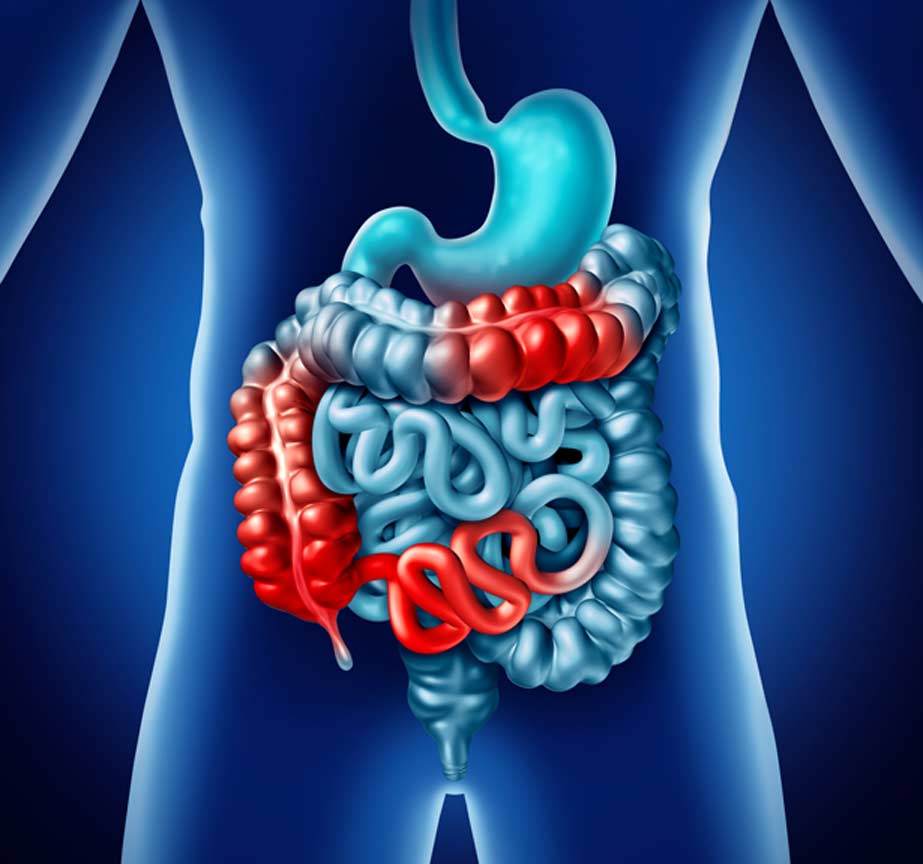Crohn's can lead to serious complications, especially when untreated and unmanaged, and thus early detection and a plan for treatment are crucial.
A form of inflammatory bowel disease (IBD) which causes inflammation in the digestive tract, Crohn's disease manifests in a variety of ways, often making it difficult to initially diagnose and manage.
Causes
The exact cause of Crohn's disease is unknown, though research has identified likely sources of the ailment and eliminated some others.
The likeliest root culprit for Crohn's disease is an abnormal immune response in the body, likely triggered by a virus or bacteria. In attempting to fight off the trigger, your body also attacks the digestive system.
Heredity seems to play a role in the development of Crohn's disease, but is not the sole factor. You are more likely to develop Crohn's if you have relatives with the disease, but most people with it don't have a family history.
Eliminated causes of Crohn's include diet and stress. These contribute to the aggravation of Crohn's and worsening of symptoms in some patients, but do not directly cause the development of the disease.


Symptoms
Crohn's disease affects different parts of the digestive system in different patients, but most commonly targets the colon and the adjacent part of the small intestineF. This leads to a wide variety of symptoms, stemming as a direct result of the attack on these parts of your anatomy and indirectly from malnutrition and chronic inflammatory responses. Common symptoms include:
- Diarrhea
- Chronic fatigue
- Fever
- Pain in your stomach or lower abdomen
- Cramping
- Bloody stool
- Sores in the mouth, i.e. canker sores
- Unexplained weight loss
- Impaired appetite
- Drainage or bain near the anus
- Inflammation of tissues around the eyes
- Arthritis
- Inflammation of bile ducts and the liver
- Delayed growth in children
Diagnosis
Diagnosis of Crohn's disease often begins with blood tests, to look for common signs associatedwi th the disease. In particular, patients with Crohn's frequently present with anemia, infection, or hidden blood in the stool.
A true diagnoses depends on more thorough procedures, however. One or more of these may be required to confirm your condition:
- Colonoscopy. Direct observation and sampling of your colon using a camera on a long, thin tube. Biopsy of affected tissues, collected in this way, is the definitive diagnostic criteria for Crohn's disease.
- Capsule endoscopy. Observation of your small intestine via a small swallowed camera.
- CT scan. Advanced X-ray imagine of your digestive system.
- MRI. Magnetic imagine used to evaluate specific symptoms of Crohn's disease in the small intestine or near the anus.
- Balloon-assisted enteroscopy. A technique used to observe portions of your digestive system which other endoscopic procedures struggle to observe.
Treatment Options
Crohn's cannot be cured, currently, but there are several treatment options which can minimize symptoms or force the disease into remission.
- Anti-inflammatory medications.
- Immune suppressants.
- Antibiotics.
- Symptom-specific medications.
- Dietary management.
- Intravenous feeding to rest the bowels.
- Surgical removal of damaged tissues.
The extent of treatment necessary and success in causing remission will vary from case to case.
